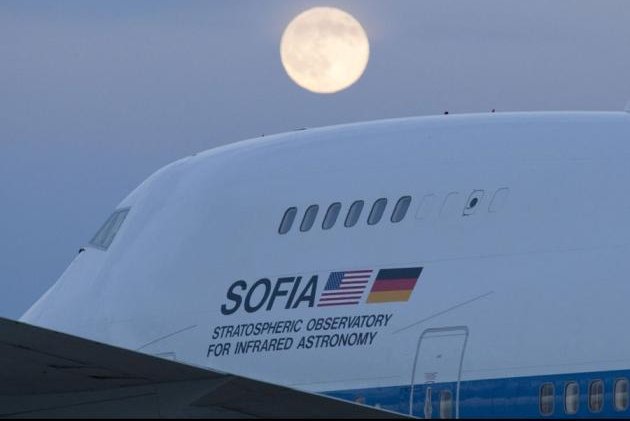SOFIA (NASA/Tom Tschida)
WASHINGTON, March 4 (UPI) -- Under the budget proposal released by the White House Tuesday, NASA's 2015 expenditures would stay roughly the same -- about $65 million less than its current Congress-approved budget, but $600 million more than it spent in 2013.
The bulk of the money NASA is asking for would help maintain the agency's major astrophysics and planetary science missions. Roughly $1.3 billion would go toward building a new Mars rover, while $15 million would help begin planning efforts for a robotic mission to Jupiter’s moon Europa.
Not quite as lucky as NASA's astrophysics and planetary projects, the agency's Stratospheric Observatory for Infrared Astronomy, or SOFIA, an infrared telescope mounted onto a Boeing-747, will see its budget slashed by $72 million.
The plane will be grounded, NASA officials say, unless the German Aerospace Center agrees to pick up a larger share of the tab. The German space program currently pays for 20 percent of the SOFIA mission.
Speaking about the SOFIA budget slash, Dan Lester, astronomer at the University of Texas at Austin, told Nature: "It’s an enormous surprise.”
But NASA as a whole fares well compared to agricultural research spending and DOE's nuclear and fossil energy programs.
A tweet from Matthew Hourihan, a budget analyst with the American Association for the Advancement of Science, offers a visualization of 2015's research and development budget as compared to last year's federal investment in the sciences.
Mary Woolley, a top lobbyist for research funding, voiced her displeasure with president's budget request in regards to science and research. "We simply cannot sustain our nation’s research ecosystem, combat costly and deadly diseases like Alzheimer’s and cancer, and create quality jobs with anemic funding levels that threaten the health and prosperity of Americans," she said in a statement.
[NBC News]
[Nature]
[ScienceInsider]















